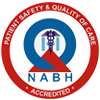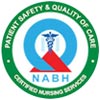
What Are the Different Types of Heart Surgery and Their Purposes?
July 13, 2023
There are many types of heart surgery. The type of heart surgery you have depends on the condition being treated.Coronary artery bypass grafting (CABG)
Coronary artery bypass grafting is often called CABG (pronounced “cabbage”) for short. This surgery treats coronary artery disease (CAD) in one or more of your coronary arteries. You might’ve heard someone say “double bypass,” “triple bypass” or “quadruple bypass.” The first word tells you how many coronary arteries and their branches need to be bypassed (two, three or four). CABG uses a healthy blood vessel from somewhere else in your body to create a new path for blood to reach your heart. Usually, CABG uses arteries from your arms or chest, or veins from your legs. This allows your blood to avoid (bypass) the damaged part of your coronary artery.Heart valve repair or replacement
Heart valve surgery manages heart valve disease by repairing or replacing the valve that isn’t working as it should. This surgery allows a “door” that manages your blood flow to open more widely or close more tightly. As a result, blood can flow in the right direction and get where it needs to be.Aneurysm repair surgery
Aneurysm repair surgery treats aortic aneurysms in your belly and chest. This surgery replaces the damaged part of your aorta with a graft, which is an artificial artery made of a special type of cloth. The graft offers a new, safe path for your blood to flow. Left ventricular reconstructive surgery treats aneurysms that form in your heart muscle. These aneurysms usually result from a heart attack. Surgery removes the aneurysm and any surrounding scar tissue. This reduces symptoms, like angina, and allows your heart to pump better.Septal myectomy
A septal myectomy helps people who have hypertrophic cardiomyopathy. This disease causes your heart muscle to become too thick. Usually, it affects the septum (the muscular wall that separates the left and right sides of your heart).The surgery removes a small part of your septum. This allows more blood to flow from your left ventricle to your aorta and helps relieve symptoms.Heart surgery for atrial fibrillation
Some people with atrial fibrillation (AFib) need heart surgery to treat another condition. A surgeon can treat atrial fibrillation during the same operation using the MAZE procedure. The MAZE procedure is a helpful option when other AFib treatments haven’t worked. A surgeon uses a sophisticated method to create scar tissue in your heart. This scar tissue is helpful because it blocks the abnormal electrical signals that cause AFib. Your heart can then get back to a normal rhythm. The MAZE procedure can also be done through minimally invasive means. This is a suitable method for people with AFib who have no other heart problems that need repair.Insertion of a cardiac device
People who have arrhythmias or heart failure may benefit from surgery to insert a cardiac device. Several kinds of devices treat specific problems. A permanent pacemaker helps your heart’s electrical system work as it should. The pacemaker’s sensor allows it to know when your heart rhythm is off and restore a normal rhythm. An implantable cardioverter defibrillator (ICD) detects dangerous arrhythmias. The ICD sends a safe electric shock to your heart to bring back a normal rhythm. A left ventricular assist device (LVAD) helps your left ventricle pump blood to your aorta and the rest of your body. It’s used when other heart failure treatments aren’t working. It also improves quality of life for people with heart failure as they wait for a heart transplant. A total artificial heart (TAH) takes over the function of your right and left ventricles. This device is a temporary solution known as a “bridge to transplant.” It helps people stay strong enough to have heart transplant surgery.Heart transplant surgery
Heart transplant surgery is a last-resort treatment for people who have end-stage heart failure. It involves replacing your heart with a donor’s heart.Recent Blogs
- Signs You Need to See a Doctor for Kidney Pain
- What Is A Nuclear Radiologist
- GUIDE TO NUCLEAR MEDICINE IMAGING
- Nuclear Medicine In Oncology
- Advancements In Nuclear Medicine Technology
- The Role Of Radiotracers In Nuclear Medicine
- An Introduction To Nuclear Medicine
- Cardiac Catheterization: When Is It Required?
- Types Of Pediatric Cardiology Test
- Tips For Preventing Heart Problems In Kids
- Advances In The Diagnosis Of Congenital Heart Disease In Children
- Signs Of Heart Problems In Children
- What Is A Pediatric Cardiologist?
- Understanding Congenital Heart Defects In Children
- Pediatric Cardiac Surgery: Types And Considerations
2023
- December (6)
- November (8)
- Cardiac Catheterization: When Is It Required?
- Types Of Pediatric Cardiology Test
- Tips For Preventing Heart Problems In Kids
- Advances In The Diagnosis Of Congenital Heart Disease In Children
- Signs Of Heart Problems In Children
- What Is A Pediatric Cardiologist?
- Understanding Congenital Heart Defects In Children
- Pediatric Cardiac Surgery: Types And Considerations
- September (7)
- Lifestyle Changes To Prevent Diabetes
- New Innovative Advances In Diabetes Treatment
- The Link Between Obesity And Diabetes
- Monitoring Blood Sugar At Home
- The Importance Of Regular Diabetes Check-ups
- Understanding Diabetes: Types, Causes, Symptoms & Treatment
- Lower Blood Sugar Naturally: Managing Blood Sugar Through Diet
- August (8)
- What’s The Difference Between A Neurologist And Neurosurgeon?
- Dementia: Causes, Symptoms, Diagnosis And Treatment
- Seizures: Causes, Symptoms, Diagnosis And Treatment
- Epilepsy: Causes, Symptoms, Diagnosis And Treatment
- Is Autism A Neurological Disorder? Causes, Symptoms & Diagnosis
- Pediatric Neurology: Neurological Disorders In Pediatrics
- What Are The Most Common Neurological Disorders?
- Types Of Neurosurgery: Overview, Procedure & Costs
- July (11)
- Types of Cardiac Stents
- Types of nuclear cardiology tests
- What Are the Different Types of Heart Surgery and Their Purposes?
- What is the difference between Cardiologist and Cardiothoracic Surgeon?
- What is the difference between Invasive, Non Invasive and Interventional Cardiology?
- What are the different Cardiology Subspecialties?
- What Are The Do’s And Don’ts For The Embryo Transfer Process?
- 5 Myths Over IVF
- Superfoods That Can Boost Your Chances of IVF Success
- What Is Male Infertility? Treatments For Male Infertility
- Causes of Male and Female Infertility
- April (4)
- March (1)
-

Share with us
Click Here -

Organ Transplantation
Click Here
Copyrights © 2024 PSG Hospitals. All Rights Reserved.








